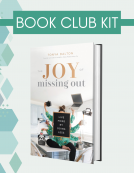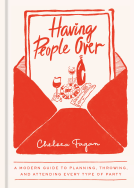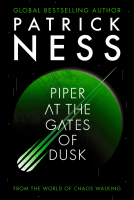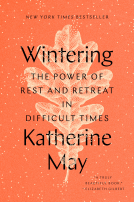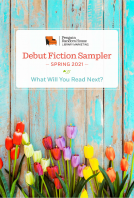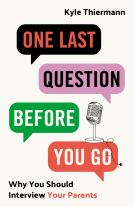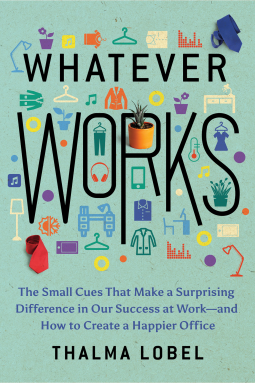
Whatever Works
The Small Cues That Make a Surprising Difference in Our Success at Work--and How to Create a Happier Office
by Thalma Lobel
This title was previously available on NetGalley and is now archived.
Send NetGalley books directly to your Kindle or Kindle app
1
To read on a Kindle or Kindle app, please add kindle@netgalley.com as an approved email address to receive files in your Amazon account. Click here for step-by-step instructions.
2
Also find your Kindle email address within your Amazon account, and enter it here.
Pub Date Jul 14 2020 | Archive Date Aug 03 2020
Talking about this book? Use #WhateverWorks #NetGalley. More hashtag tips!
Description
An internationally renowned psychologist shows us how overlooked factors in our work days-our physical environments, our unconscious habits, and even traits like our faces and voices-have the power to make or break our careers.
In Whatever Works: The Small Cues That Make a Surprising Difference in our Success at Work—and How to Create a Happier Office, Thalma Lobel, one of the world's leading experts on human behavior, explores groundbreaking psychological research on job performance, satisfaction, and creativity. Lobel goes beyond obvious considerations like salary, title, and company culture to shed light on the hidden factors-often unrecognized, counterintuitive, or invisible-that have profound effects on how well we can do our jobs and how happy we are at work.
Did you know that just doodling in a certain way can increase your creativity? That looking at something green for forty seconds will improve your attention? That crossing your legs similarly to an interviewer could get you the job? That the mere presence of a smartphone on your desk can lessen your performance, even if it's turned off? That being in a warmer room makes you more likely to want to conform with the group, affecting your decision-making? These are the invisible factors that nudge our behavior on a daily basis, and combined, have a real and significant bearing on our success-or failure-at work.
In today's competitive market, where even tiny differences can be decisive, for both employees and organizations, exploiting such factors can make all the difference. The more you know about the subtle elements that can help or hinder you on the job, the better equipped you can be to take control and navigate today's competitive work world. Helpful for anyone from individual employees to managers to leaders of large organizations, Whatever Works shares valuable insights and practical takeaways to transform your professional life.
A Note From the Publisher
PDF-ONLY AVAILABILITY AT THIS TIME. PDFs opened on Kindle will likely show serious formatting issues.
Available Editions
| EDITION | Other Format |
| ISBN | 9781950665099 |
| PRICE | $16.95 (USD) |
| PAGES | 280 |
Links
Average rating from 21 members
Featured Reviews
This is an extraordinarily useful book. Love the research, anecdotes and techniques to improve productivity at offices, home. The author does an excellent job of explaining why some environmental factors make us more efficient, while others just zap our energy.
The research about women preferring a warmer room resonated 100% with me, as I always feel cold in my office whereas my male peers never seem to notice. Glad to know it's biological rather than a problem with me! The last section on tips for personal habits was fantastic - great to read about the facts and myths surrounding effects of smartphones on sleep, tech detox, music while working and so on.
The only thing that would make this book perfect is a chapter summary with action items. This book has so many practical ideas that readers won't be able to implement or remember everything. The summary would allow is to pick and choose without having to re-read every chapter.
In this time of self-isolation and working from home, being productive at work can be quite challenging. Regular check-ins and video calls with supervisor and colleagues help keep us accountable, but productivity is very personal. My last week working from home got me thinking about what I could do to be productive in my office hours. When I found ‘Whatever works’ on NetGalley, I hoped I had found some answers and indeed I had!
Whatever Works is a well researched book about the work place, covering topics of layout of offices, lighting in the room, how we work with other people, the advantages of diversity in a team as well as the habits that we have or can install in us to work better. Thalma answers a number a questions through this book like "should I listen to music while I work?", "What can I do to increase my creativity at work" as well as "Does classical music make one smarter?" Bringing research from around the world, this book presents ideas that are mostly actionable - it all depends on you as well as how much control you have on your workspace.
It was Part 3 of the book about personal habits that I found the most helpful. It was a good reminder about the little things that I can do in my work life to keep me on task. Whether it is keeping my phone away, out of site, for an hour when I am working on something that demands my attention, or immersing myself in nature sounds during breaks, or taking some time to clean my desk to clear some mental space, setting time aside for emails (and other social media that we are so tempted to check - that's my addition)... these are all little things we know we should do but we leave too often to the last minute. I also liked the reminder that dimness spurs creativity - my work office has dim lighting that I find quite productive but my home office has a lot of natural light which I am still adjusting to.
The underling idea of the book is to present strategies and research that have worked, while at the same time, highlighting the caveat that we have to find something that works best for us. I don't listen to classical music but I will take coffee store music anyway. In these times when a lot of us are working from home, understanding the environments that we work best in as well as setting ourselves up for successful work hours is important for our success.
Thank you to the publisher for making this book available to me for review. It comes at a good time.
I love this! I am an outdoor and field personnel so I am often out ad about working in communities, traversing different terrains...and so when I find myself in an office, I've often felt like the walls are closing in on me- and the author shares something I can relate to- plants and lighting in an office!
It's interesting how simple things like the location or alignment of desks can totally affect our moods, mental well-being and productivity.
I didn't know about room temperatures- so that's pretty new to me. What I found was how this book diversifies everything I've know about offices and office space.
Thanks Netgalley for the eARC.
In university, so far, my favorite class of all time has been a psychology class on emotions and motivation - and reading this book reminded me of the very good experience that I had in this class. You can see that this is extremely well-researched, and the contents of the book are super useful - especially in the troubled times we live in now. I learned a lot about what influences our happiness and creativity in the workplace, and my favorite part was definitely the last one - about personal habits, and the importance of organization in your work and workplace.
I would absolutely recommend this book to anyone interested in learning about productivity, creativity, and the overall psychology of work performance and effectiveness.
Lobel, "hoped to deliver science-based findings that can make us happier, more satisfied, and more successful at work" and does exactly that!
This book is not completely opinion based yet not completely research based. It's a great mix of both, science with a touch of opinion and thought. The careful blend of the two makes it a great read.
That being said, there a few times when the research presented doesn't always align perfectly with the topic being discussed but it is still insightful information.
I highly recommend this book.
Thank you Netgalley for the e-ARC.
 Media/Journalist 652998
Media/Journalist 652998
I absolutely loved this book. Whatever Works covers every aspect of workplace productivity, from how offices are organized to email checking habits.
Many commonly held myths about workplaces were addressed in this book. The author took on aspects of offices that are commonplace, such as open-concept offices (which hamper workplace happiness and productivity it turns out), is expected to answer emails all day (which causes major problems in stress, focus, and productivity), not taking all of your vacation days (which you can probably guess is a bad idea), and putting in headphones to concentrate (which has mixed results, depending on the task).
The theme I saw from all of these prompts is that the ways workplaces are run need to be more data-driven, rather than being tradition derived. If this pandemic has taught us nothing about work, it's that most of us probably don't need to be in our physical office spaces in order to do our jobs. That's because workplaces don't actually focus on productivity and happiness, but are often more about appearing productive and content. This is a book that's a must-read for any working person and perhaps a great thing to slip to you the manager, if you'd like to implement some of these data-driven points in your own company.
Very useful book about how little things impact our working environment.
Well being, success and productivity at work are based on our habits, unconscious programs, room temperature, gestures etc. The more you know about these subtle cues and factors, more happy and content you'll be at work and therefore more successful.
Read it and transform your professional life.
4.25/5 stars!
"The only time a disorganized office can be an advantage is when you are working on a problem that demands creativity."
This book contains: dim and intense lights, privacy, creativity, colours, emotions, nature, walks, music, negotiations, handshakes, open spaces, and messy desks.
By the time quarantine started I'd already started working remotely. At first I had a hard time defining a healthy daily routine for myself, creating a good working environment, and most importantly, defining the fine line between my personal life and work. And even though I’ve finally found my balance, I’m always willing to improve my working conditions and make the most out of it. So I decided to pick up this book because I thought it would be perfect for my current situation.
The book is divided into three sections: the first part is dedicated to how your environment affects you and how you can use it for your advantage; the second part focuses on how relationships and communication with your co-workers affect our work; and the third part how our personal habits have power over our performance and creativity.
First of all, I was very surprised to see that this is not a book only based on the author’s experience and opinions, but it’s mostly based on scientific studies. Each chapter focuses on a specific topic - such as light, open areas, music, temperature - and several studies and results that were made on that subject are presented to the reader. The cool part is that in the end of each chapter - and sometimes in the middle - there is a small note in a post-it format with a conclusion and tips on how we can apply what we learn after reading the chapter.
I applaud the author for all the research made and commitment to write such a complete guide on improving your work. I would say this is a book more focused on ways of increasing performance and have better communication and relationships with your co-workers. The second part unfortunately will only be useful when I return to the office, but I found the first and third parts very helpful for the times we are living in right now.
I didn’t know what to expect at first, but I found some useful information that I will definitely apply in my daily life. If you are interested in learning how your environment affects your productivity and how to use small simple ways of increasing your productivity, this is the book for you!
***A big thank you to NetGalley and BenBella Books for the free ARC in exchange for an honest review***
 Reviewer 192560
Reviewer 192560
This is the kind of self-help book that provides actual useful advice, making you feel that you are actively learning something new from it. And you do.
 Saju K, Reviewer
Saju K, Reviewer
When science based theory is mixed with the authors own experience and their belief on how to make things better it makes for an interesting read. I received an advance copy of this book via netgallery and am whole heartedly endorsing this book for all professionals.
The book has beautifully taken us through each stages of personalization and changes which when done improves the overall efficiency and wellbeing leading to greater productivity and a happier mindset. Change in workplace lighting, alteration of tone when asking questions, imparting information, effect of open space, all the nuances have been covered with her insightful advice on cause and effect.
I would not have any hesitation in recommending this book to all work professionals, employee and employer.
#WhateverWorks #NetGalley
 Reviewer 262225
Reviewer 262225
The book is about the small cues that make a significant difference to our success at work.
Another book by the same author is - Sensation.
How do self help books today look like ? Vast majority focus on one obvious and important subject and lay out its secrets and conclusions methodically. Most of these books harness obvious factors like harnessing motivation, getting organized, networking, and so on.
This book is a bit different. This book focuses on elements that either we think that they do not matter or we are not aware of. There are so many extremely valuable and interesting findings in psychology that should be made available to everyone, not just to professionals.
What does this book contain ?
What are the small - small things YOU can do to improve your life at OFFICE,
Did you know People focus better and be more creative with the ambient noise of a coffee shop ?
Did you know that the phone conversations, also called halfalogues , are the most distracting for co - workers ?
Did you know that the presence of a plant in one's physical space improves attention and recovery after performing a mentally fatiguing cognitive task ?
Did you know that nature is a reliable stress reducer/buster ?
Did you know that Women feel that they are more scrutinized, than men, for their appearance in an open office ?
Did you know that Light and brightness influence self control and self awareness ? it will motivate the employees to adopt the behaviors that impresses around them.
Did you know that darkness makes people feel disconnected and distant from others and increases the feeling that they can do what they want ?
There so many such information that the book talks about. this book is very interesting
and once you start you wouldn't want to put it down. it talks about our day to day life and how we can use latest research to our advantage and make everyone's life better around us.
I see that some of the things that she talks about offices is already implemented by some experts in my office. but I never knew why it was so ? It is good feeling that I know that now. I am going to put one live plant on my office desk now.
Also, Author's writing style is good, the way she has weaved the research info in the book is interesting.
Overall, I liked this book. I think that this book is highly informative and useful. I recommend this book - Read it ! Read it !! Read it !!!
5 stars
Lobel, a psychologist and academic, has put together the unconventional list of ways to make work better. They’re the ‘hacks’ you’d never think of—having access to nature scenes, taking music breaks, or using your voice when applying for a job. Rather than relying on stories or anecdotes, 'Whatever Works' is backed by the latest research evidence.
I found the chapter on creativity in the workplace one of the most helpful. Creativity is one of those traits every employer wants it and most employees don’t think they have it. Lobel removes the mystery of what creativity looks like in the workplace and provides tips on how to outperform others in this important skill.
 Reviewer 639058
Reviewer 639058
Very helpful book that summarizes the psychological studies of the factors affecting workplace productivity and personal success and creativity. Some surprises - like the most efficacious time of day to tackle certain kinds of problems.. Accessibly presented and well-organized, with practical takeaways after each discussion.
Recommended.
Many thanks to NetGalley for the ARC in exchange for the honest review.
Readers who liked this book also liked:
We Are Bookish
Business, Leadership, Finance, Nonfiction (Adult), Self-Help
Elizabeth Arnott
General Fiction (Adult), Historical Fiction, Mystery & Thrillers
Publishers Lunch
General Fiction (Adult), Nonfiction (Adult), Teens & YA
Brian Soonho Yoon
Children's Nonfiction, Crafts & Hobbies
Kyle Thiermann
Biographies & Memoirs, Nonfiction (Adult), Parenting, Families, Relationships

